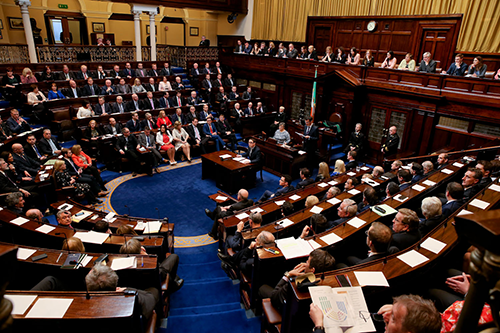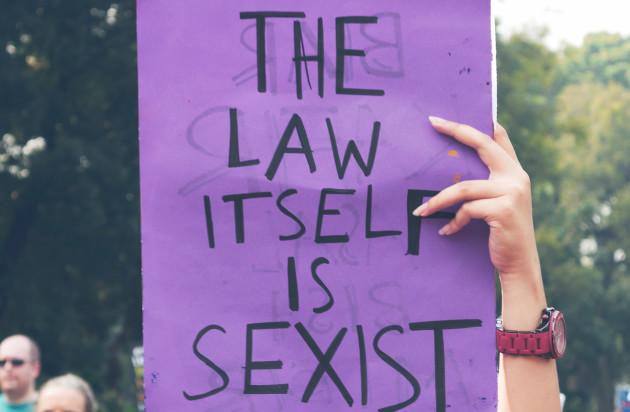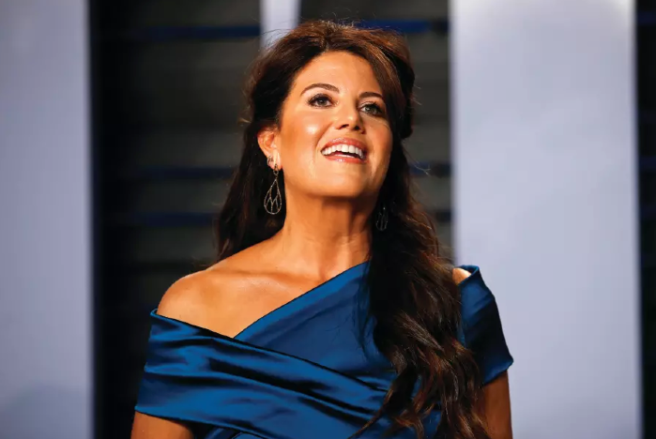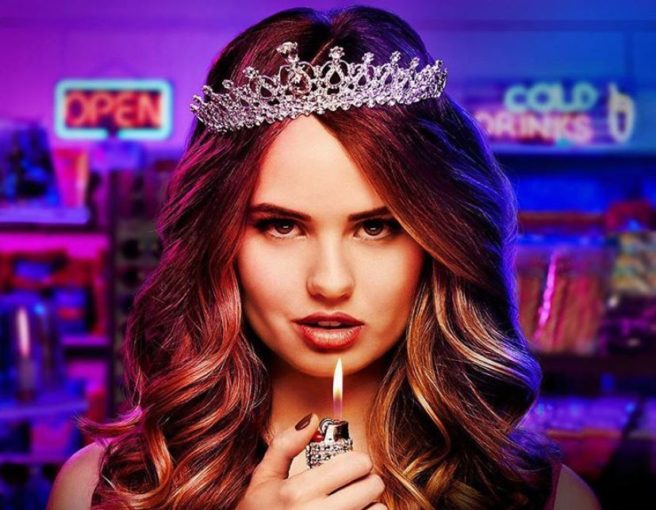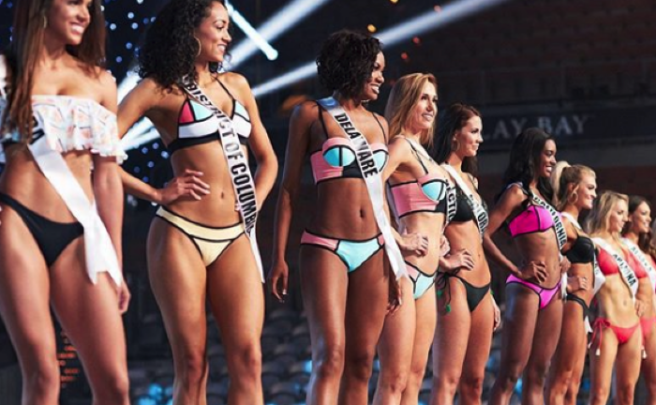
What will it mean to be an ’empowered’ woman in 2019?
What does it mean to be an ‘empowered woman’ in 2019?
The phrase ‘empowered woman’ is intrinsically loaded with underlying meaning and misunderstood perceptions. When many of us hear the phrase, most people envision a sexually-promiscuous woman who refuses to have children and most likely drinks scotch.
Arguably, its meaning has dramatically changed in the last year, ever since actress Alyssa Milano’s ‘Me Too’ tweet went viral.
If you’ve been sexually harassed or assaulted write ‘me too’ as a reply to this tweet. pic.twitter.com/k2oeCiUf9n
— Alyssa Milano (@Alyssa_Milano) October 15, 2017
2018 has not been the easiest of times for Irish women.
Watching the news everyday has been a tortuous experience, with violence against women splashed across every publication, the media raining debilitating double standards upon anyone remotely famous and the paparazzi splashing unflattering female body images across the internet.
Two massively painful rape trials have illuminated the imperative need for changes in the Irish law regarding sexual violence and assault, and the horrific way in which women are treated and cross-examined in the courtroom.
The Repeal movement was draining for everyone involved, the right to bodily autonomy is still undeniably under threat.
It’s worth noting that standards are changing all around us, lines are being drawn, boundaries are being set. Finally, I might add.
Women are always hyper-aware of the need for self-protection, especially when it comes to sex and dating.
We’ve all held our keys in between our knuckles as we walk down a dimly-lit road at night, we’ve all experienced unwanted attention on nights out, and we’ve all worried about what we wear, and the negative consequences our clothes could potentially bring.
Standards of relationships are changing in conjunction, as women entering the dating world have new questions which they are asking of potential lovers.
This also stands for workplace relationships, women are fighting back against pay inequality and sexism which are prevalent even in first-world countries such as Ireland and the UK.
Watching Little Mix and Ariana Grande fight back against Piers Morgan's recent sexist comments has been such a breath of fresh air.
Hey @LittleMix – when are you going to admit you stole this idea from @dixiechicks? pic.twitter.com/dLRX2TMv2k
— Piers Morgan (@piersmorgan) November 20, 2018
The #MeToo and TimesUp movements have been eye-opening experiences for men, women and intersex people worldwide, with every facet of society examining its own behaviour with a new lens.
Unlike most men, women are expected to be looking for love around every corner.
During our teens and 20s, being single is depicted as a hugely empowering, freeing experience, yet a shadow dawns on the eve of our 30th birthdays: the misogynistic view that our biological clocks are ticking, and where on earth is our husband?
I have learnt many things from relationships, mainly that learning who you are can often only become a reality when you face tough aspects of life alone.
This is not true for everyone, of course, but many women in this day and age have to shrug off countless societal pressures and notions which are veiled in misogyny and shame.
Female empowerment in this article can only be relevant to my personal experiences, women are extremely complex beings and each feels empowered in totally different ways.
For women with disabilities, of different ages, gender binaries, classes and ethnicities, feeling good about ourselves comes in all shapes and forms.
The end. Photo credit: @Pinterest #funkyfeminist #girlpower #femmeaintfrail #futureisfemale #fearofafemaleplanet #feminist #feminism #femaleempowerment pic.twitter.com/iqQ0yYWUiw
— Funky Feminist (@funky_feminist) November 24, 2018
Sex is power, #MeToo has taught me that. I cannot speak for other women, especially those in the LGBT+ community, but as a heterosexual woman, I have also learned many other hard lessons about the need to empower myself and have control over my body and mind.
Women are not therapists, we cannot be expected to handle the emotional baggage of other people.
We have enough of our own. Watching Ariana get blamed for Mac Miller's death is a primary example of the degradation placed on people for leaving toxic relationships.
— Ariana Grande (@ArianaGrande) May 23, 2018
Ariana Grande has entered ultimate female empowerment mode, sporting a friendship ring instead of her recent engagement rock, and regularly posting images of classic film stars and female icon moments on her Instagram account.
Her new music video will be a tribute to classic movies with female leads such as 13 Going On 30, Mean Girls, Bring It On and Legally Blonde.
Thank u, next; Ari’s latest phenomenally successful single, pays homage to her past loves before declaring that her relationship with herself is now a priority.
Reports claim that her ex-fiancé, Pete Davidson, did not support her sufficiently following the death of Mac Miller, her former love.
Ariana explained how toxic her relationship with Miller was; she endured the pain of watching someone they love struggle through addiction but realised that it was expected of her to ‘fix’ his pain, to mother him through his issues.
Her realisation that she could not carry out this burden was imperative.
When Davidson joked about swapping Grande’s birth control pills on Saturday Night Live, the reaction was mixed.
Pete Davidson has come after attack after he joked about changing Arianas birth control pills for tic tacs so she would stay with him…wtf pic.twitter.com/cftJVvpVvB
— thedailyteaspill (@thedailyteaspi1) October 15, 2018
Many wondered why controversy erupted over the comment, yet many reflected on the notion of literally trapping a woman into staying with you through pregnancy, a huge emotional and physical ordeal for women.
Realise that we are not defined by our relationship status, and to have a relationship with yourself can be an incredibly growth experience.
Letting go of the pressure to always have an ‘other half’ can be freeing in itself. Don’t underestimate the value of your friendships, especially female ones.

SEX is empowering:
Learning what you like (this applies to anyone with a sexual partner- in a relationship or not) is CRUCIAL.
Women have always been expected to satisfy men in terms of sex, the language was never granted to us regarding how to communicate our desires, and how to find pleasure.
Consent in this country has always been a murky topic, hidden under the surface.
I never heard the word mentioned until I went to college, and by the time I learnt the word’s true meaning, I had already had unconsensual experiences without truly understanding them at all.
Educating ourselves about consent, and only having relationships with those who truly respect us and our bodies can be incredibly empowering.
Consent should not be assumed. Unwanted sexual advancements are a form of sexual violence. Click to learn more about violence against women: https://t.co/VSfdbUfEa2 via @UN_Women #TimesUp pic.twitter.com/FDPbudAz3T
— UN Women AsiaPacific (@unwomenasia) November 24, 2018
Learn how to say no, be selfish.
Women cannot be expected to please everyone, all the time. Often we have to work incredibly hard, in our employment or relationships, to get the achievements we deserve.
Learning to put yourself first can be a massive way of respecting our own mental health and practicing self-love and acceptance.
Ask yourself, what do YOU want, instead of what does everyone else want of you.
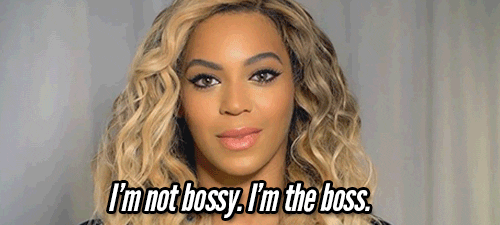
Learning new skills
Self -defence classes, a new language, a skill such as website building, graphic design, even calligraphy. Why not?
If you have valuable assets such as the ability to drive, and even do nitpicky jobs such as online banking or tax can be empowering in terms of releasing yourself from co-dependence.
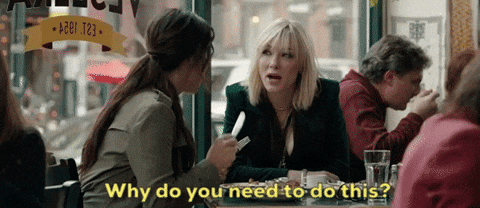
Don’t let opportunities pass you by.
Go with your instincts. Do what you’ve always wanted to do, but always found an excuse never to do it. You miss 100% of the chances you let pass by, and you never know how much you can gain from letting your fears dissipate and challenging yourself.
Mental health
The importance of having a health mind can never be underestimated. Take personal time whenever you know that you need it, don't succumb to pressure.
Body confidence
Society makes it so damn hard to allow you to feel secure in your own skin. In a world with such fascination with image and beauty, loving yourself is a completely rebellious act.

Everyone is unique, so don’t try to fit a beauty mould which will undoubtedly change in the next five to ten years.
In the 90s it was bone glamour with malnourished models such as Kate Moss on the runway looking like all they needed most was a McDonalds, and now the Kardashians have transformed cosmetic beauty into plastic surgery-induced curves, glossy brunette hair and big lips and bums.
God, I did also say a million other things in the 1 hour podcast for channel 4 and in my 2000 word pieces I write, and long interviews I do for the media… but everyone just obsessively latches on to the kardashian comment in which I said they may be UNKNOWING double agents. https://t.co/UffJJ7LSCu
— Jameela Jamil (@jameelajamil) September 4, 2018
Who knows what the next big trend will be, but why force yourself to look like someone else? You are worth so much more than what you weigh or what you see in the mirror.
Taking control of your love life
The laws of dating have transformed recently, with apps such as Bumble finally realising that women don’t always want to wait around for the right person to ask them on a date.
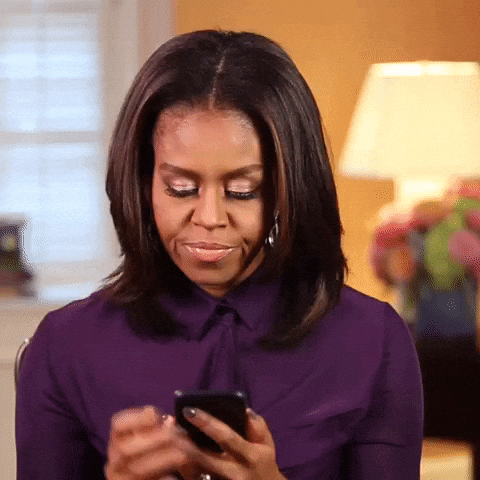
Try asking someone out, the worst that can happen is that they say no.
Food and health
I lived in San Francisco for four months and had the most atrocious diet, and when I came home I vowed to learn at least ten easy home-cook meals that are quick to make, and have health benefits. Having independence in terms of your body and health can be crucial to an empowering mindset, especially for women with chronic health problems.
Career

Finding career success can be a huge morale boost, especially for women. Success shouldn’t be based on how much you earn, but how much you love your job and how you contribute to bringing a positive energy to the world around you.
Fight to be heard at the table, realise how intelligent you are and how you should be valued in your workplace. Don’t let anyone invalidate you.
You have the key to your own happiness, no one else.
To be totally independent, ‘empowered’ single gal has countless benefits. Find your own definition of ‘empowerment’, some women are empowered by their style, their job, their relationship, their sex life, and others are empowered simply by being happy in their own skin.
Whether you're feeling great and powerful totally covered up or completely naked, do whatever makes you happy.
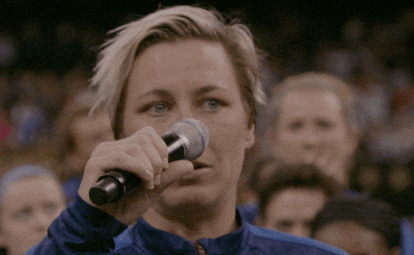
As Ru Paul the Great regularly claims, “If you can’t love yourself, how in the hell are you gonna love somebody else?”









